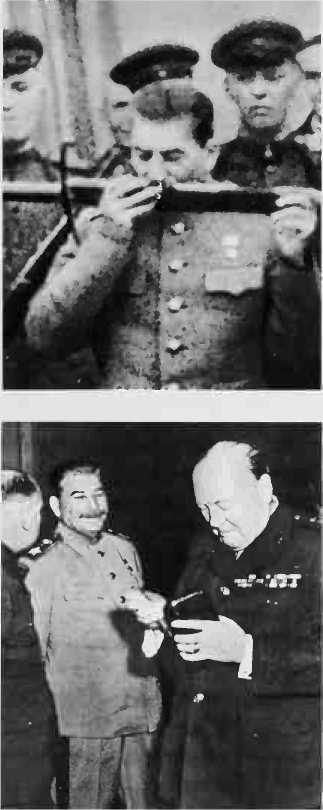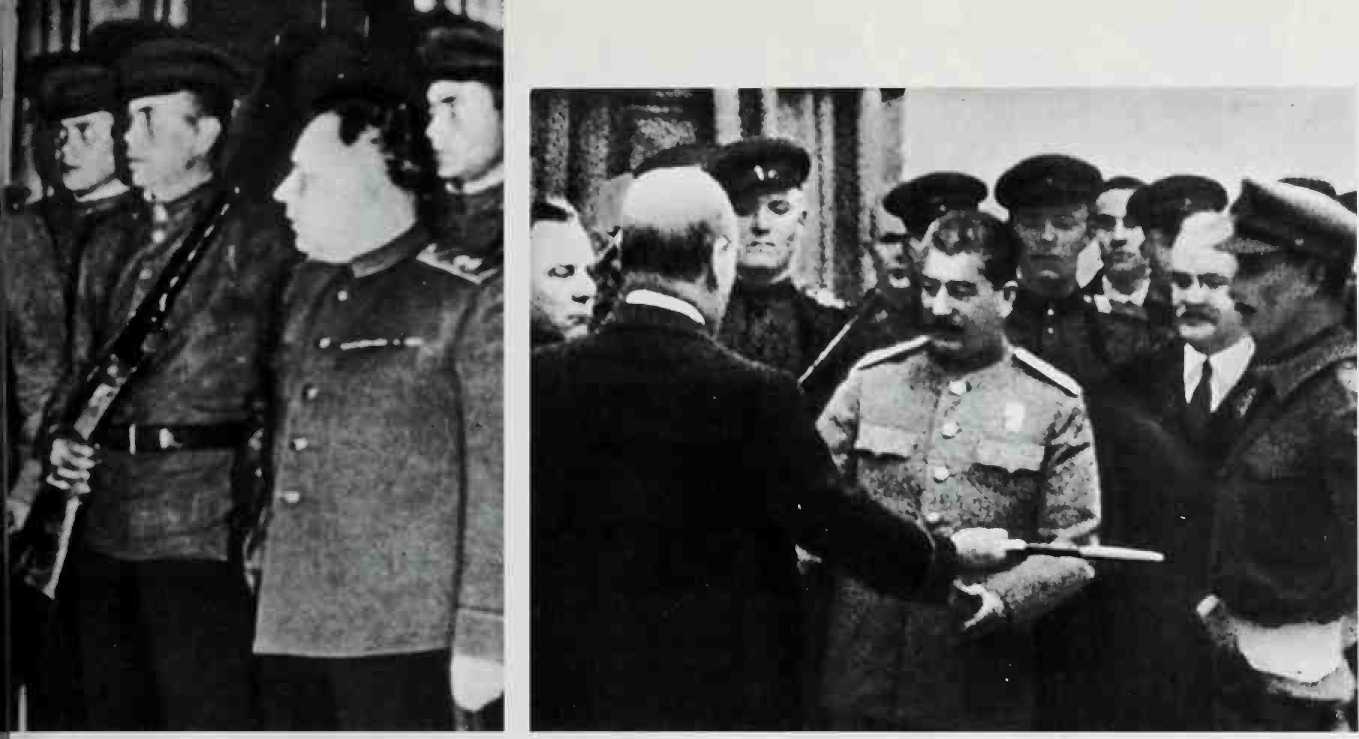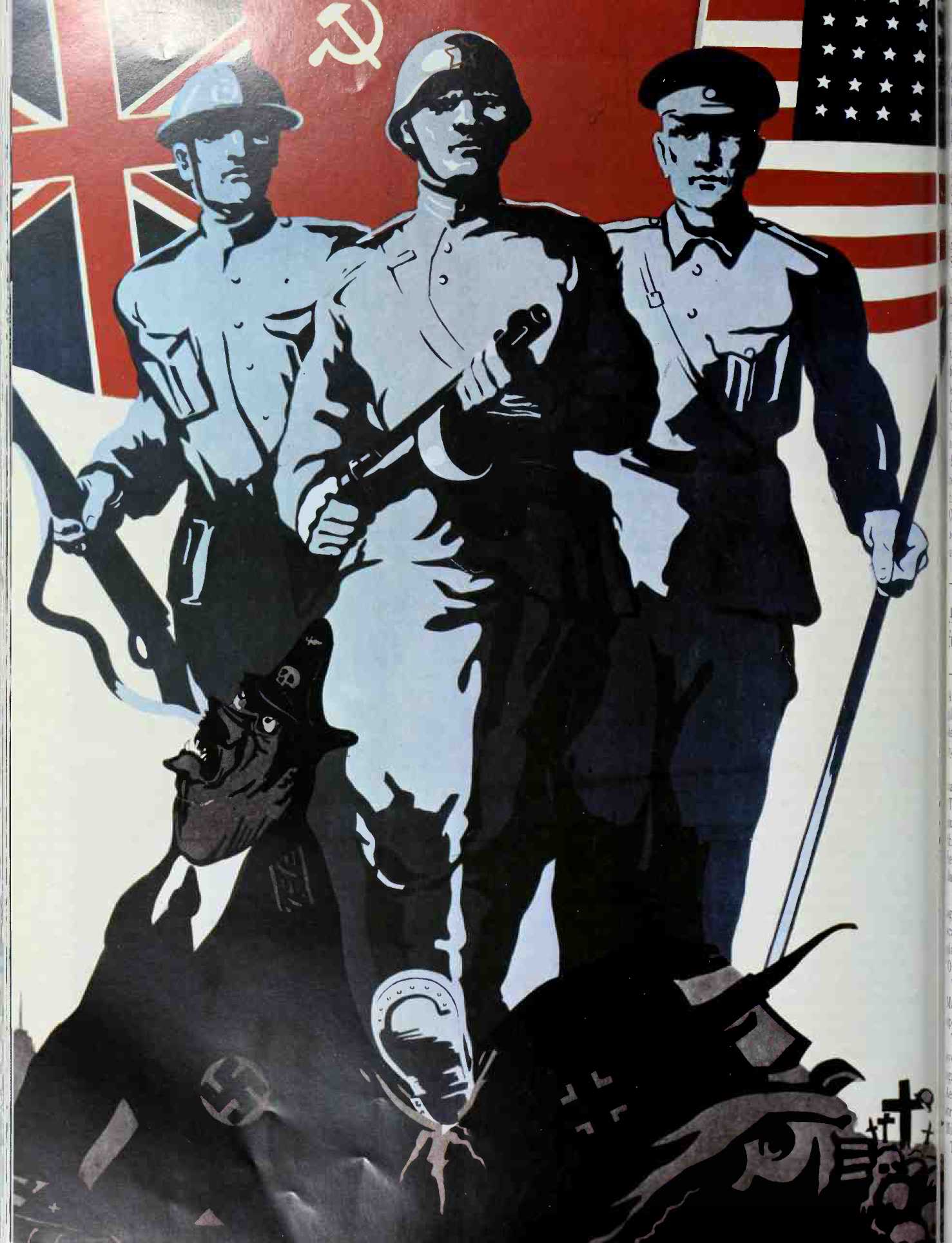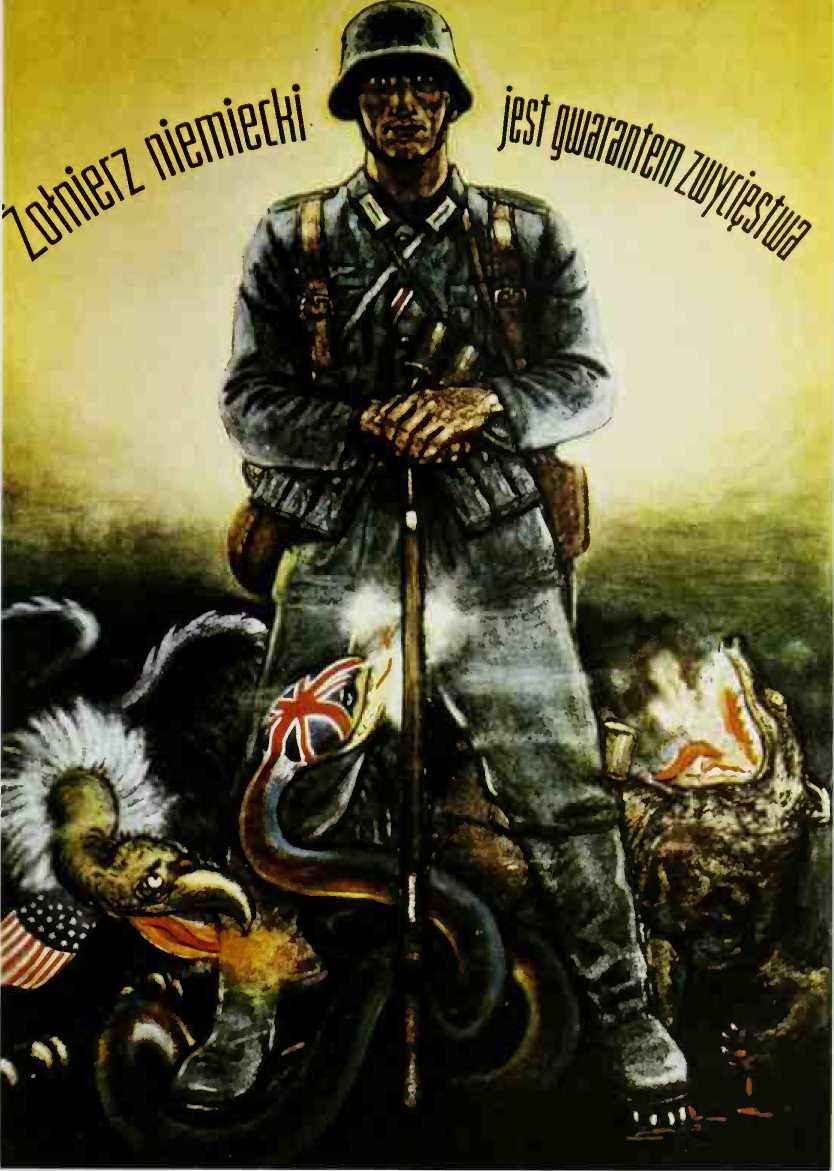The British sense of isolation was enhanced by President Roosevelt’s own conduct since arriving in Teheran. Churchill relates in his memoirs how he, Churchill, was led at this juncture to seek a personal interview with Stalin on account of the fact that "the President




Two views of the Allies.
< A Soviet poster illustrating a quote by Stalin: "The Red Army with the armies of our Allies will break the back of the Fascist beast.”
A German poster displayed in Poland: "The German soldier is the guarantor of victories. ”
Here Russia becomes a ravening wolf, the American eagle a balding vulture, and Britain (perfidious Albion) a snake.
Was in private contact with Marshal Stalin and dwelling at the Soviet Embassy, and he had avoided ever seeing me alone since we left Cairo, in spite of our hitherto intimate relations and the way our vital affairs were interwoven.” In this interview, which took place on Churchill’s 69th birthday, the Prime Minister sought to destroy "the false idea” forming in Stalin’s mind "that”, to put it shortly, "Churchill and the British Staff mean to stop 'Overlord’ if they can, because they want to invade the Balkans instead”. Churchill argued that if Roosevelt could be persuaded to call off Operation "Buccaneer” in the Indian Ocean, there would be enough landing-craft both for the Mediterranean and a "punctual” (sic) "Overlord”. And yet, given Churchill’s predilections earlier in 1943 for a major Anglo-American effort to bring about a collapse of the German position in the Balkans, and given also the bitter regrets Sir Alan Brooke was confiding to his diary only a month before the Teheran Conference about the chances missed for achieving this, was Stalin’s mistrust unjustified?




 World History
World History









